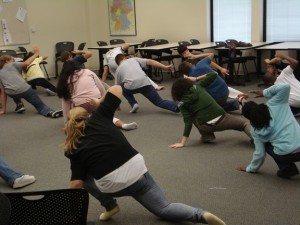Carol’s Summary:
Research has found that the old advice to study in the same, quiet workspace with the same study schedule may be an ineffective way to get the most out of your study time. Psychologists believe adding variety to a study routine makes learning more effective. When you are studying, the brain is subconsciously making subtle connections between the study material and the background sensations, which is thought to enrich the information, making you less likely to forget.
Psychologists also recommend spacing study sessions, like studying one hour tonight, one tomorrow and one this weekend. Retention is more effective because every time the student has to relearn pieces of information, the knowledge is reinforced from the last study session before piling on new information. The same effect comes into play when someone has to dig for information when taking a test. Researchers call it “desirable difficulty†which translates to:  the harder something is to remember, the harder it will be to forget once the material is revisited. These studies show students should be pushed to love difficulty and thrive in an environment enriched with diverse learning, peppered by mini-tests, quizzes, essays and on-the-spot oral reviews. Encouraging students to have diverse minds will help prepare them for the world of work where much of the chaos has to be ordered on a daily, hourly and by the minute.  LifeBound’s curricula feature many ways to test students–multiple choices, essay, true/false, fill in the blank and oral review–so that students can test what they know in diverse ways.  We applaud the concept of “desirable difficulty” and think it has many applications for success in school, career and life.
Article: Forget What You Know About Good Study Habits
Every September, millions of parents try a kind of psychological witchcraft, to transform their summer-glazed campers into fall students, their video-bugs into bookworms. Advice is cheap and all too familiar: Clear a quiet work space. Stick to a homework schedule. Set goals. Set boundaries. Do not bribe (except in emergencies).
To read the full article: nytimes.com
Share this Article with Your Friends:















 Carol’s Summary:
Carol’s Summary: